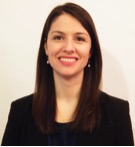8 June 2017
View Webinar Content
Presentation—Introduction to the webinar and panelists
Presentation—Hannah E. Murdock: REN21 Renewables 2017 Global Status Report
Presentation—Matt Jordan: EA+EE: Accelerating Energy Access with Energy Efficiency
Presentation—Aaron Leopold: Poor People’s Energy Outlook 2017: National Energy Access Financing: A Bottom-up Approach
Transcript—Webinar audio transcript
The Clean Energy Solutions Center, in partnership with the Renewable Energy Policy Network for the 21st Century (REN21), hosted this webinar on breaking down silos and what linking renewable energy, energy access and energy efficiency really looks like.
Renewable energy and energy efficiency can be used in concert to address energy access concerns. By reducing the amount of energy required to provide modern energy services, energy efficiency is an important—and in some cases necessary—driver of energy access. Evidence shows that energy efficiency can dramatically improve the economics of energy access by reducing the upfront investment and ongoing fuel costs and by improving system reliability and performance where existing supply resources fall short. Some estimates calculate that the use of currently available energy efficiency measures could result in the delivery of universal access to modern energy services using 50%–85% less energy than prevailing estimates say is required. The effects are especially pronounced in energy access efforts that focus on distributed, off-grid renewable energy systems.
This webinar will began with an overview of REN21’s newly released Renewables 2017 Global Status Report and will looked at this nexus of renewables, energy access and energy efficiency and what progress has been made to date.
Speakers
- Hannah E. Murdock, Project Manager & Analyst, REN21
- Matt Jordan, Director of Market Development, CLASP
- Aaron Leopold, Global Energy Representative, Practical Action
The presentations will be followed by an interactive question and answer session with the audience.
About the GSR
 REN21’s Renewables Global Status Report (GSR), first released in 2005, provides a comprehensive and timely overview of renewable energy market, industry, investment and policy developments worldwide. The report is a true collaborative effort of authors, REN21 Secretariat staff and Steering Committee members, regional research partners, and includes the input of over 800 individual contributors and reviewers. The GSR has become the most frequently referenced report on renewable energy business and policy, serving a wide range of audiences.
REN21’s Renewables Global Status Report (GSR), first released in 2005, provides a comprehensive and timely overview of renewable energy market, industry, investment and policy developments worldwide. The report is a true collaborative effort of authors, REN21 Secretariat staff and Steering Committee members, regional research partners, and includes the input of over 800 individual contributors and reviewers. The GSR has become the most frequently referenced report on renewable energy business and policy, serving a wide range of audiences.
Panelists
 Hannah E. Murdock, Project Manager & Analyst, Renewable Energy Policy Network Of The 21st Century (REN21)
Hannah E. Murdock, Project Manager & Analyst, Renewable Energy Policy Network Of The 21st Century (REN21)
Ms. Murdock works on research coordination, analysis, and community management to produce the Renewables Global Status Report, REN21’s flagship publication. She also leads REN21’s energy efficiency data collection efforts for the 1Gigaton Coalition, a joint initiative by UNEP and the Norwegian Ministry of Foreign Affairs. Ms. Murdock has co-authored and contributed to numerous publications. She holds master’s degrees in International Energy from Sciences Po–Paris School of International Affairs, and in Public Administration from the University of North Texas.
 Matt Jordan, Director Of Market Development, CLASP
Matt Jordan, Director Of Market Development, CLASP
Matt Jordan is Director of Market Development at CLASP, where he leads the organisation’s Clean Energy Access portfolio. Their work focuses on leveraging energy efficiency to accelerate the achievement of global energy access and sustainable development goals.
 Aaron Leopold, Global Energy Representative, Practical Action
Aaron Leopold, Global Energy Representative, Practical Action
Aaron Leopold is responsible for leading policy engagement with global processes and partners relating to energy, and for coordinating advocacy work across Practical Action’s offices. Aaron is also Deputy Director: Global Advocacy with Power For All, a global campaign of private and civil society organisations pushing for universal energy access before 2030. Aaron also serves on the Board of Directors of the Alliance for Rural Electrification (ARE). Prior to Practical Action, Aaron was Director for Environment and Sustainable Development at the Global Governance Institute, which he co-founded.
